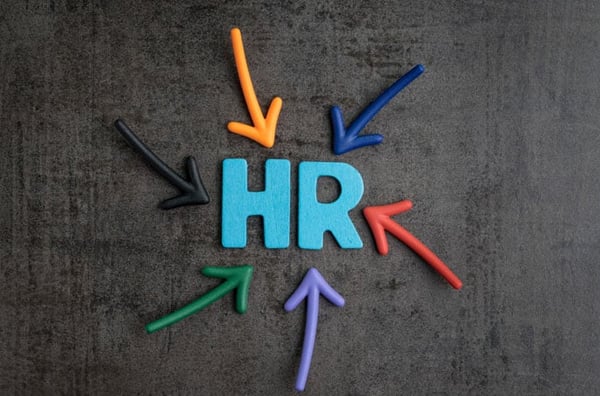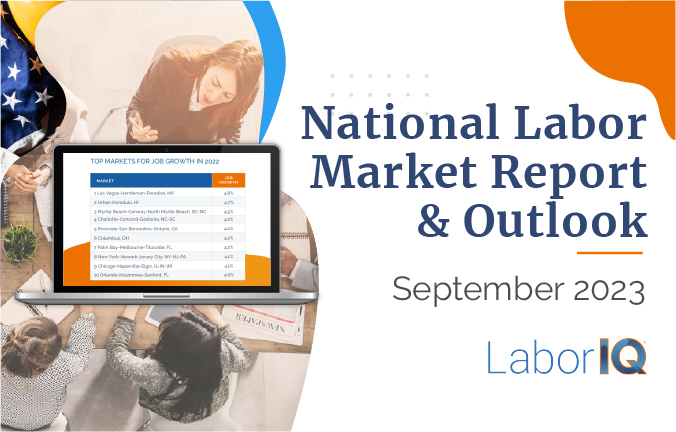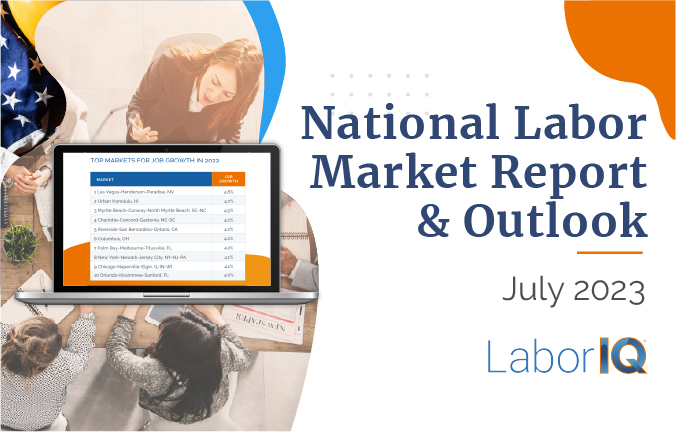As cliche as it sounds: a business is only as good as its workforce. Employee engagement, managing your talent pool, and enhancing the candidate experience are vital for ensuring companies run like clockwork.
Cue, HR management.

This brings together employee recruitment, selection and dismissal, and facilitates staff development, compensation, rewards, and more. In other words, the HR manager focuses on the needs of human resources - the lifeblood of your organization.
So, what are the responsibilities of such an important role? What do HR managers earn? ThinkWhy’s LaborIQ software answers these questions by curating trillions of data points validated against more than eight million companies so that you don’t have to guess about compensation.
More About The HR Manager Role
Human resource management is a challenging role that requires you to wear many hats. Their primary function is to deliver a strategy and vision for company-wide, people-related processes. But they may also support colleagues when it comes to resolving disputes, discussing changes in responsibility and/or salary, and dismissing staff.
Multi-tasking is common for HR managers. They have to have a hand in various areas of the business and an understanding of the lifecycle of its employees. This involves attracting new talent, streamlining hiring strategies, developing the skills of the company's staff, and strengthening the employer brand.
Other key responsibilities include:
- Recruiting candidates
- Making final hiring decisions
- Processing payroll
- Managing and executing employee disciplinary action
- Supporting employees through disputes
- Updating company policies
- Maintaining and managing employee records
- Discussing employees' career development plans alongside their managers
The Skills and Experience Needed to Be an HR Manager
As HR management involves lots of administrative work, it goes without saying that suitable candidates need to be analytical, organized and agile in their workflow. This extends to drawing insights from data and observing trends in the workplace to establish policies that improve the employer brand and retain top talent.
On top of this, HR managers require people skills. Empathy and compassion are vital for handling employees going through a dispute or facing dismissal. HR managers may have to deliver bad news and often have to look at two sides of an argument and remain fair while keeping the needs of the business’ in mind.
Experience to qualify as an HR manager usually includes:
- A bachelor’s degree in human resource management or business management
- Five or more years of work experience in a related occupation, such as an assistant in an HR department, a recruitment manager, etc.
HR Manager Compensation
The median salary for an HR manager in the Philadelphia-Camden-Wilmington metro area is $97,054 per annum. According to LaborIQ’s custom salary report for this location, compensation is expected to increase by 1.3% to $118,053 by 2023.
Because the market is currently skewed in favor of job candidates and is predicted to remain this way for the next four quarters, increasing compensation can help to attract and retain top talent.
LaborIQ recommends a salary of $116,525 for HR managers with 4-6 years of experience and a bachelor's degree. Wages can be expected to keep rising in the next few years. This is especially true because the supply of HR managers has decreased since 2020. While HR managers were readily available to seek new opportunities during the pandemic, most talent is now engaged. As a result, talent availability is forecasted to remain tight for the next 5 years. As such, maintaining a strong employer brand and offering a competitive benefits package is vital for attracting skilled staff with the necessary experience.
Where you hire your HR manager can also affect how much you might pay in salary. The lowest recommended base salary for HR managers is $97,557 in the Tamla-St. Petersburg-Clearwater metro area. As such, companies that can hire remotely might benefit from lower employee costs while providing attractive compensation for top talent.
For your custom salary report, click here.
Further Considerations
HR managers play a vital role in your business. As such, it's essential to pick someone with the right level of experience, people skills and analytical abilities for the job. Unfortunately, top talent for this position is hard to come by, and the talent shortage for this role isn't likely to change in the next few years.
Don't forget, HR managers know their worth. After all, they handle payroll for the rest of the business, so they understand their own salary requirements better than most. That’s why it’s vital to propose a competitive compensation package that will appeal to them and illustrate the importance of this role to the organization.






.jpg)


